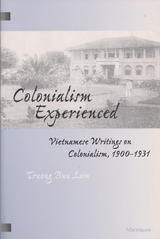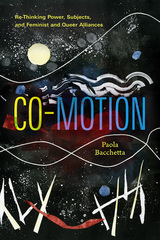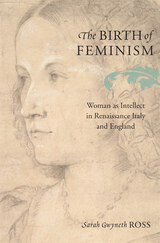
In this illuminating work, surveying 300 years and two nations, Sarah Gwyneth Ross demonstrates how the expanding ranks of learned women in the Renaissance era presented the first significant challenge to the traditional definition of “woman” in the West.
An experiment in collective biography and intellectual history, The Birth of Feminism focuses on nineteen learned women from the middle ranks of society who rose to prominence in the world of Italian and English letters between 1400 and 1680. Drawing both on archival material—wills, letters, and manuscript compositions, some presented here for the first time—and on printed writings, Ross gives us an unprecedented sense of educated early modern women’s lives.
Sponsored and often educated by their learned fathers and other male relatives within a model that Ross terms “the intellectual family,” female authors publicized their works within the safety of family networks. These women, including Christine de Pizan, Laura Cereta, Margaret More Roper, Lucrezia Marinella, and Bathsua Makin, did not argue for women’s political equality, but they represented and often advocated women’s intellectual equality. Ross demonstrates that because of their education, these women had a renaissance during the Renaissance, and that in so doing they laid the foundation for the emancipation of womankind.
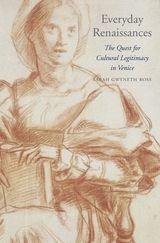
The world of wealth and patronage that we associate with sixteenth- and early seventeenth-century Italy can make the Renaissance seem the exclusive domain of artists and aristocrats. Revealing a Renaissance beyond Michelangelo and the Medici, Sarah Gwyneth Ross recovers the experiences of everyday men and women who were inspired to pursue literature and learning.
Ross draws on a trove of original unpublished sources—wills, diaries, household inventories, account books, and other miscellany—to reconstruct the lives of over one hundred artisans, merchants, and others on the middle rung of Venetian society who embraced the ennobling virtues of a humanistic education. These men and women sought out the latest knowledge, amassed personal libraries, and passed both their books and their hard-earned wisdom on to their families and heirs.
Physicians were often the most avid—and the most anxious—of professionals seeking cultural legitimacy. Ross examines the lives of three doctors: Nicolò Massa (1485–1569), Francesco Longo (1506–1576), and Alberto Rini (d. 1599). Though they had received university training, these self-made men of letters were not patricians but members of a social group that still yearned for credibility. Unlike priests or lawyers, physicians had not yet rid themselves of the taint of artisanal labor, and they were thus indicative of a middle class that sought to earn the respect of their peers and betters, protect and advance their families, and secure honorable remembrance after death.
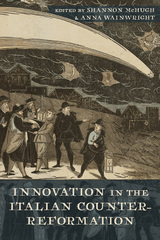
Published by University of Delaware Press. Distributed worldwide by Rutgers University Press.
READERS
Browse our collection.
PUBLISHERS
See BiblioVault's publisher services.
STUDENT SERVICES
Files for college accessibility offices.
UChicago Accessibility Resources
home | accessibility | search | about | contact us
BiblioVault ® 2001 - 2025
The University of Chicago Press


